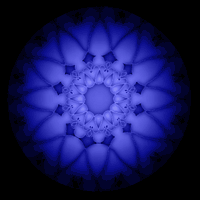suggestive search
The folks at Google keep coming up with nifty new ways to munge data. Google Suggest, now in beta, shows you possible search terms as you type - the ten 'most likely' search terms that start with the letters you've typed so far, and an estimation of how many pages that term is on. You'd think the term 'most likely' would have a somewhat fluid definition, given the enormity of the web and the intricacies of human interest, but it hones in on most search terms before the word is even complete.
As with Google's search functions, it really is amazing how fast the response is. Google has spidered over 8 billion webpages, but searches never take more than a half of a second (this is somewhat dependent on your connection... if you're on a KayPro with a 300-baud modem it might take a bit longer). The suggestions on Google Suggest come up almost as fast as you type them... something near 150 milliseconds response time per letter.
Many science fiction writers and academics have fantasized that when computers attain a complexity that approximates that of the human brain they will become 'conscious', self-aware. (Personally I think that it's rude to expect computers with that much complexity to be aware, when there are so many people who have brains of that complexity yet seem to lack awareness.) If there is any truth to this, Google will surely get there first. (I, for one, welcome our new silicon masters.) There was an article a while back titled 'Is Google God?'... why not? Google is definitely The Matrix.
As with Google's search functions, it really is amazing how fast the response is. Google has spidered over 8 billion webpages, but searches never take more than a half of a second (this is somewhat dependent on your connection... if you're on a KayPro with a 300-baud modem it might take a bit longer). The suggestions on Google Suggest come up almost as fast as you type them... something near 150 milliseconds response time per letter.
Many science fiction writers and academics have fantasized that when computers attain a complexity that approximates that of the human brain they will become 'conscious', self-aware. (Personally I think that it's rude to expect computers with that much complexity to be aware, when there are so many people who have brains of that complexity yet seem to lack awareness.) If there is any truth to this, Google will surely get there first. (I, for one, welcome our new silicon masters.) There was an article a while back titled 'Is Google God?'... why not? Google is definitely The Matrix.

0 Comments:
Post a Commentreturn to front page